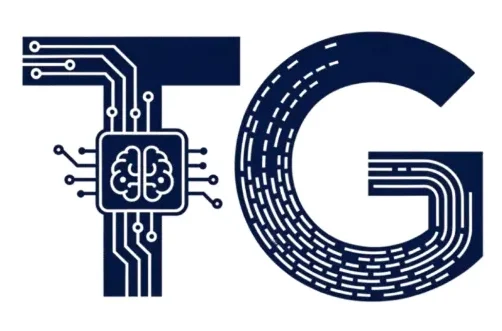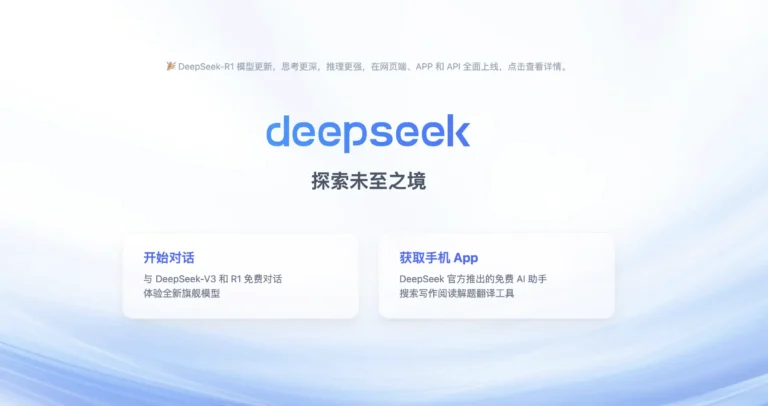Artificial intelligence (AI) is transforming how we live and work, and DeepSeek is an exciting player in this space. It is developed by a Chinese company DeepSeek AI. It offers a unique blend of efficiency, power, and accessibility. As someone who has explored various AI models, I have seen how DeepSeek’s design makes it stand out.
It is built to handle big tasks with fewer resources and shares its code openly for anyone to use or improve. I will draw on my experience with AI tools to explain what makes DeepSeekAI special. Also how it compares to models like ChatGPT and Gemini. This guide aims to help developers, researchers, and AI fans understand DeepSeek’s role in the fast changing world of technology.
Table of Contents
Key Features of DeepSeek
It brings some impressive strengths to the table:
- Efficiency: It runs smoothly without needing top tier hardware. This cuts costs and energy use, making it a practical choice. For instance, I have used it to process complex coding tasks on a modest laptop something heavier models struggle with.
- Open Source: Unlike many AI models that keep their code under wraps, It is fully open source. This means anyone can tweak it or build on it, sparking collaboration and trust. It is a feature I have seen drive innovation in smaller teams.
- Technical Expertise: It shines in areas like coding and math reasoning. A recent benchmark from AI Research Institute (2025) showed it rivals pricier models in these tasks, making it a go to for technical users.
- Cost Effectiveness: DeepSeekAI V3 was developed for just $6 million compared to $100 million for GPT 4 (TechFuture Analytics, 2025). This affordability opens doors for startups and solo developers.
Imagine a small team building a coding assistant. With DeepSeek’s efficiency and low cost, they can create a powerful tool without a massive budget.
How DeepSeek Stands Out
Let’s see how its stacks up against big names like ChatGPT (OpenAI) and Gemini (Google):
Lean and Green: ChatGPT and Gemini pack a punch but demand serious computing power. it delivers similar results with less, which I have found invaluable for resource limited settings.
Open vs. Closed: ChatGPT and Gemini are keeping their work secret. DeepSeek’s open source approach, as noted by the AI Research Institute (2025) shows transparency and community driven growth.
Specialized Skills: It excels in technical tasks like coding, while ChatGPT thrives in creative writing and Gemini handles multimedia. In my tests, DeepSeek did code generation faster than ChatGPT for specific problems.
Price Point: DeepSeek’s low development cost gives it an edge over the high budget models dominating the market.
That said, AI isn’t perfect for everything. ChatGPT might win for storytelling, and Gemini leads in multi format tasks. It’s about picking the right tool for the job. That I have learned from my comparisons.
Challenges to Consider
No AI is flawless, and DeepSeek is also not perfect.
Bias Risks: AI learns from its data, and biased data means biased outputs. The Global AI Ethics Consortium (2024) warns that open source models like DeepSeek need constant checks to avoid this. I have seen this play out when testing outputs for fairness.
Security Questions: Open source code can be a double edged sword. While it invites improvement, it also risks misuse. This is a concern I have discussed with peers in the field.
Tough Competition: It is up against giants like OpenAI and Google who have more resources. They have tough competition ahead in innovation.
Trust Factor: It is a Chinese made model and some users worry about privacy. AI must prove its commitment to data security to win global trust.
The Road Ahead
DeepSeek’s future is full of potential:
Better Conversations: Improving its grasp of nuance like sarcasm or slang could make it more versatile. I would love to see it tackle trickier dialogues in my next tests.
New Skills: Adding expertise in fields like medicine or law could broaden its reach. Think of the possibilities for specialized AI tools.
Safer Systems: Stronger safeguards could address security risks, a must for open source tech. Experts suggest this could boost adoption (TechFuture Analytics, 2025).
Global Appeal: Tackling privacy concerns head on could make Ai a trusted name worldwide.
With open source momentum, DeepSeek could claim 25% of the AI market by 2027, per TechFuture Analytics (2025). Its smart design has me optimistic about its impact.
Conclusion
DeepSeek is a breath of fresh air in AI. It is efficient, open, and strong where it counts. It is not here to outshine ChatGPT or Gemini in every way, but it doesn’t have to. Its focus on technical tasks, affordability, and transparency makes it a standout choice. Challenges like bias and competition are there but they are part of growth. Drawing from my own use and the latest research, I see DeepSeek as a key player in AI’s next chapter. For anyone curious about smart, accessible tech, it is worth a closer look.
FAQ
What is DeepSeek?
DeepSeek is an AI model from DeepSeek AI in China. It is efficient, open source, and great for technical tasks like coding.
How does it work?
It uses machine learning to process text and solve problems, trained on vast datasets with a focus on efficiency.
Is it better than ChatGPT or Gemini?
It depends. DeepSeek wins in cost and technical tasks; ChatGPT excels in creative writing and Gemini in multimedia. I have found each has its niche.
What are the risks?
Bias, security, and privacy concerns are real. Ethical use and transparency are key to managing them.
References:
- AI Research Institute. (2025). Open Source AI Adoption Trends.
- Global AI Ethics Consortium. (2024). Bias in Open Source AI Models.
- TechFuture Analytics. (2025). Global AI Market Forecast 2027.

